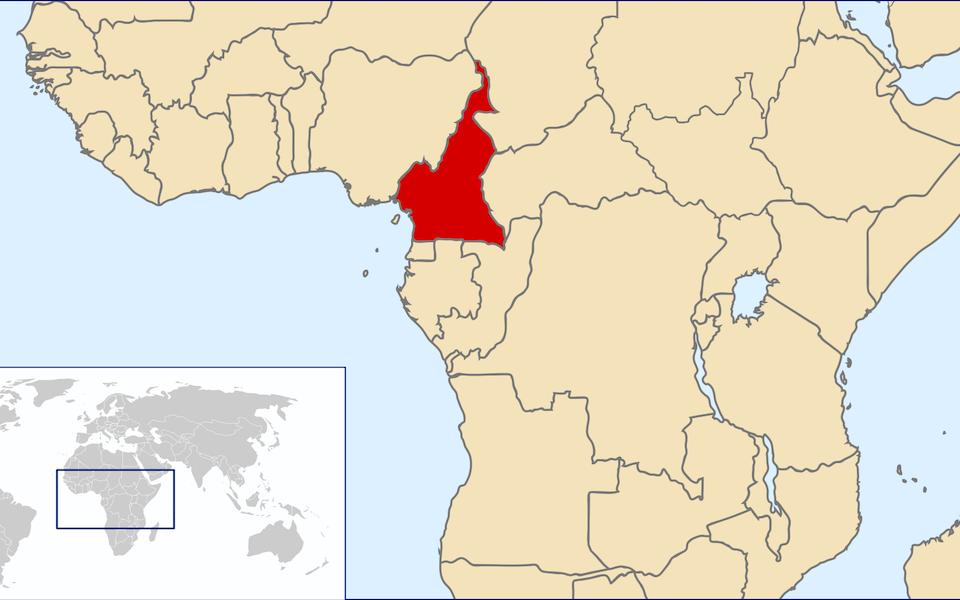For Dr. Kwamba Nkembe, the fourth time proved to be the charm.
Nkembe, who works as a physician and is based in Greensboro, traveled outside of the country in late February for six weeks of vacation, initially stopping in Paris before making his way to Cameroon, where he has family. After a about a month in Douala, the country’s largest city, Nkembe found himself unable to return to the United States because of the pandemic.
“I was supposed to come back on April 19,” Nkembe says. “But then all the borders were closed, and I ended up staying an extra month.”

When he first arrived in the country on March 3, the rumors about the coronavirus were just picking up and no precautions were in place. After a few weeks however, preventative measures like regular hand-washing, mask-wearing and social-distancing had become the norm. Shops and businesses closed at 6 p.m. and he began spending most of his time at his father’s home with other family members and the house staff. He also took walks on a nearby empty beach when he had time.
“The country locked all of the incoming and outgoing traffic,” Nkembe says. “No one was going in or coming out, except for cargo planes.”
And that’s how he got home.
After reaching out to the US embassy in Cameroon, Nkembe was able to reserve a seat on the fourth flight for Americans out of the country after the first, second and third flights filled up. He, along with about 150 other Americans, boarded a cargo flight back to the country. The flight made stops in other countries, like Ireland and the Ivory Coast, to pick up more nationals; he eventually landed in Washington DC on May 14.
On the flights, Nkembe says passengers were required to wear masks and gloves. Once he landed, he found that the airports, usually bustling with travelers, were empty. The first thing Nkembe did when he got back was get tested for coronavirus.
“Back in Cameroon, I had some flu-like symptoms,” he says. “Like a cold. I had a mild runny nose, a slight fever. When I was back, my symptoms had subsided, but I wanted to see if I had been exposed.”
His test came back negative.
Now, he says he’s waiting to finish up his two weeks of quarantine which was recommended by his work before going back to his practice in Bassett, Va. Since the start of the pandemic, Nkembe hasn’t been practicing as a physician because he was on vacation. In his free time, he says he’s been keeping up with what is happening with the virus and brushing up on his medical knowledge.
In addition to getting tested, Nkembe says he’s happy to be back with his family and is excited to play tennis again, something he wasn’t able to do back in Cameroon.
Looking back at how Cameroon handled the pandemic versus the US, and North Carolina in particular — which entered Phase 2 right after Nkembe’s return, he says he doesn’t think either situation is better or worse and that you have to consider the context of each country to understand the different precautions that are being taken.
“In Cameroon, there’s no access to massive testing,” he says. “There’s no massive access to treatment. The healthcare system there is a little rudimentary, so those measures were suitable for Cameroon.”
Nkembe says the coronavirus has fundamentally changed society and that we should remain cautious going forward.
“I think we’re witnessing history,” he says. “In my lifetime, I didn’t think we’d be seeing a pandemic. It’s a life-changing event. I think moving forward, we should be more cognizant that things like this can happen.”
Kwamba at-a-glance:
- Favorite thing eaten in quarantine: Chinese food, specifically Singapore chow mein fun. I was craving it but couldn’t get it in Cameroon, not a good one anyway.
- Quarantine silver lining: I got to spend a little more time with my dad and get his overall finances and health a little better under control. It was nice to be able to spend more time with him.
- What you are watching/reading/listening to: I’m just catching up on medical stuff like the coronavirus itself and brushing up on all my medical knowledge.
- Words of encouragement: I just think that we should maintain precautions. It’s not over yet. I see that people are saying coronavirus has come and gone, but I think we should continue to maintain preventive efforts recommended by CDC.
Join the First Amendment Society, a membership that goes directly to funding TCB‘s newsroom.
We believe that reporting can save the world.
The TCB First Amendment Society recognizes the vital role of a free, unfettered press with a bundling of local experiences designed to build community, and unique engagements with our newsroom that will help you understand, and shape, local journalism’s critical role in uplifting the people in our cities.
All revenue goes directly into the newsroom as reporters’ salaries and freelance commissions.


Leave a Reply